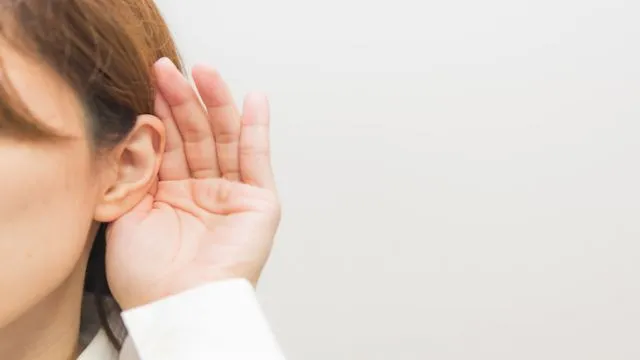
- Share on Facebook61
- Share on Pinterest
- Share on Twitter
How often do you pay attention to your ears? If you are like most people, you tend to ignore your ears – they are just kind of there on the side of your head. Ears actually have a few critical jobs to do including regulating balance and transmitting information about the position of your head to your brain. Not only that, but your ears also reveal a great deal about your health.
Listen up, while we reveal just what your ears are trying to tell you:
You might have diabetes
Loss of hearing is the third most common health problem amongst Americans. It’s no wonder the hearing aid business is booming. What many people don’t know is that hearing loss can be a symptom of a number of systemic conditions, including diabetes. A study found that hearing loss is twice as common in people with diabetes than in people who don’t have diabetes. Prediabetic adults were also found to have a 30% higher rate of hearing loss than those with normal blood sugar. According to researchers, loss of hearing may be related to a loss of blood supply to the inner ear. According to Seth Schwartz, MD, director of the Listen for Life Center at Virginia Mason in Seattle, “Metabolic changes that occur in diabetics can be toxic to the inner ear.” Additionally, ear infections are common in persons with diabetes and can be quite severe.
You might have clogged arteries
What do you earlobes look like? Take a look, do you have a diagonal crease on them or no crease? The line (known as Fran’s sign) is named after Sanders T. Frank who made a correlation in 1973 between the crease and heart disease.
In a 2012 study published in The American Journal of Cardiology, participants with a diagonal earlobe crease were more likely to show other signs of heart disease than those without wrinkles.
The American Journal of Forensic Medicine and Pathology published a study where they found that the diagonal earlobe line in persons under 40 was a predictor of heart disease in 80% of the cases.
You might have TMJ
Do you have persistent ear pain? If so, this may be a symptom of something wrong not with your ears but rather with your jaw. A common issue that can cause ear pan is a malfunction with the temporomandibular joint, or TMJ. This joint connects the jaw to the bones that sit in front of your ears. If you have pain when you talk or open your mouth wide, and your ears check out fine – make an appointment with the dentist.
You might have high blood pressure, anxiety or even a brain tumor
Ringing ears, also known as tinnitus, is a symptom of over 200 different problems. These range from anxiety to hypertension. If your ringing is persistent, it is best to make an appointment with your physician to have this checked out. In some sporadic cases, ringing in the ears can be a symptom of a type of brain tumor known as an acoustic neuroma. This tumor grows on the nerve that impacts hearing.
You might have allergies
Your nose might run, and your eyes might water but what happens to your ears during allergy season? Ears are heavily impacted if something doesn’t agree with you. They might feel clogged, itch or even swell. The Eustachian tube is a passage that connects your nose to your ears, and it has to open to let air pass between the two. When your nose becomes congested, it impacts the functionality of the tube and can cause plugged ears.
You might have a predisposition to certain conditions
Earwax is pretty gross right? It actually acts as a lubricant and antibacterial defense preventing certain things from getting into your ears and impacting your health. Interestingly enough, there is a connection between earwax and various health conditions. The DNA of some diseases such as hepatitis may present in earwax just like other conditions manifest in saliva or blood. According to a 2009 study published in FASEB Journal, there is a link between a gene known as ABCC11 (associated with an increased risk of breast cancer) and a particular wet and sticky earwax. However, it is best not to freak out if you have wet, sticky earwax – just make sure you are getting regular checkups. Of course, if you have funky smelling earwax along with pain, go to the doctor as soon as possible as this could mean that you have an ear infection.
More Things Your Ears May Be Trying to Tell You
- Your ears are a pale color: You may be deficient in calcium, and other vitamins if your ears are very pale.
- Your ears are a red color: Red ears may be an indication of issues with your kidneys.
- Your ears are a deep red color: Deep red colored ears may accompany constant headaches and be related to memory loss or even brain conditions.
- Your ear cartilage is inflamed: If the cartilage in your ear is inflamed, it may be a symptom of relapsing polychondritis, a rare genetic disorder.
Take Good Care of Your Ears
Here are some ways to treat your ears with tender loving care. Remember to pay special attention to your ears and get any changes or discomforts checked out by your physician.
- Use earplugs for loud noises
- Listen to your music through earphones at a reasonable volume
- Don’t use cotton swabs – use a warm damp towel to remove excess ear wax
- Take your medication as directed
- Keep your ears dry
- Exercise – pumping blood to all parts of the body – even the ears is important
- Manage stress levels
- Get regular ear checkups
-The Alternative Daily
- Share on Facebook61
- Share on Pinterest
- Share on Twitter

